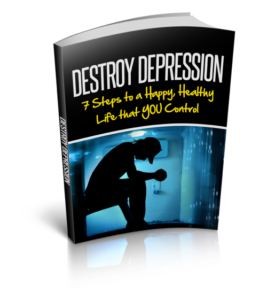Most of us would have heard the old adage “ you are what you eat” . Many of us are familiar with the concept of how poor food choices can contribute to obesity, heart disease and generally poor health. We are told from a young age, eat your vegetables and you will grow up to be big and strong. Rarely are we told eat your vegetables to reduce your chances of experiencing depression, anxiety or bipolar disorder. Current research is suggesting that nutritional deficiencies are contributing to poor mental health.
The effect of diet on Mental Health
There are a number of recent studies that have shown a correlation between a lack of specific nutrients and an increase in frequency and intensity of depressive episodes and panic attacks. One study by Marx et.al (2017) found that schizophrenic and depressed populations showed lower levels of antioxidants such as vitamin E and C. The authors also state that results from 21 studies which included 117,229 participants, showed an increased risk of depression when diets high in processed meat, refined grains, sweets and high-fat dairy products were followed. They also assert that the probability of depression was reduced when a diet of fruit, vegetables, whole grain, fish, olive oil and low-fat dairy was adhered to. Much of the negative effect of poor diet is attributed to inflammation. It is thought that a healthier diet not only increases the levels of important nutrients but reduces inflammation as well. Mikawa et.al (2013) suggest low levels of B6 and iron are related to panic attacks and hyperventilation episodes. Their study of patients admitted to a hospital with a panic attack or hyperventilation had significantly lower serum levels of B6 and iron when compared with a non-affected control group. While both studies acknowledge the need for further investigation it appears that nutritional deficiencies are partially responsible for poor mental health outcomes.
The Gut/Brain connection
When we hear the word “bacteria” most of us have a perception that if it is our bodies it must be bad. After all, bacteria cause illness. That’s why we wash our hands before eating or after using the bathroom. So, it may surprise you to know that the human intestines contain nearly 100 trillion bacteria which are essential for good health. There is growing research to suggest there is a direct link between the brain and the gut. Put simply a healthy gut is synonymous with a healthy brain. Foster and Newfeld (2013) assert that good gut bacteria affects the brain which can then reduce the risk of anxiety and mood disorders. They present evidence that suggests an increase in probiotics resulted in less psychological distress in individuals when compared to a control group. Marx et.al (2017) state that the study of good gut bacteria and good brain health is relatively new but is showing promise as an additional treatment for mood disorders.
What should I eat?
There are probably as many suggested diets as there are foods available. It is not the intention of this article to provide dietary advice but simply to inform as to the potential of diet to improve mental health. Not everyone is going to like all of the many fruits and vegetables that are available. You could however increase the intake of the ones you do like while reducing your intake of takeaway and pre-packed foods. Some people prefer to use supplements to bridge the gap of nutritional deficiencies. For what it is worth I take a multi vitamin, a magnesium and a vitamin C tablet daily. I also consume a probiotic drink every second day as I am not a fan of yogurt or many of the other probiotic foods. I also take an omega 3 supplement daily. I find that it helps my general health as well as my general mood. Like any lifestyle change it needs to be consistent and sustainable. Do your own research and find what works for you and what helps you to feel more energised and healthier in both mind and body. Common sense should always prevail.
Wishing you all the best in your journey
Phil Miranda
NOTE: If you are currently taking medication for a mental health issue, then under no circumstances should you cease treatment without consulting your health care professional.
Sources:
Foster, J. A., & Neufeld, K. A. M. (2013). Gut–brain axis: how the microbiome influences anxiety and depression. Trends in neurosciences, 36(5), 305-312.
Marx, W., Moseley, G., Berk, M., & Jacka, F. (2017). Nutritional psychiatry: the present state of the evidence. Proceedings of the Nutrition Society, 76(4), 427-436.
Mikawa, Y., Mizobuchi, S., Moritoki, E, & Kiyoshi. M. (2013). Low serum concentrations of vitamin B6 and iron are related to panic attack and hyperventilation attack. Acta Medica Okayama, 67 (2) 99-104



